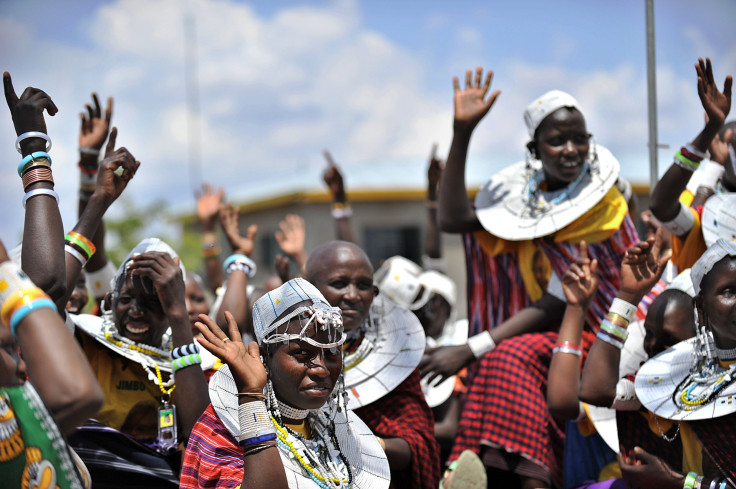Sharing Is Caring: Households With One Husband, Multiple Wives May Benefit Wives And Children's Health And Wealth

It’s a common belief that polygyny, the term for marital relationships with one husband and multiple wives, truly only benefits the man at the center of it (though often called polygamy, that label actually describes any relationship with multiple spouses, not just wives).
That belief has extended from tongue-in-cheek pop culture jokes to a declaration from the United Nations in 1994 that it actively “contravenes a woman's right to equality with men, and can have such serious emotional and financial consequences for her and her dependents that such marriages ought to be discouraged and prohibited.”
However, a new study published Thursday in the Proceedings of the National Academy of Sciences suggests that the consequences of polygyny for women might be more nuanced than we assume. Studying demographical data from 56 villages in Tanzania, where polygyny is still prevalent, the authors found that these marriages can indeed confer some meaningful benefits for the fairer sex and their children over monogamy, but usually only if it’s a voluntary decision for the wife-to-be.
"If you have a choice of a guy who has 180 cows, lots of land and other wives, it might be better for you to marry him rather than a guy who has no wives, three cows and one acre," explained study author Dr. Monique Borgerhoff Mulder, an anthropologist at UC Davis, in a statement.
In conducting their new analysis, Borgerhoff Mulder and her colleagues noted that previous research on the topic has focused broadly on the differences between polygynous and monogynous families, often finding a smorgaboard of negative impacts to these wives and their children’s health and wealth status.
According to them, however, these efforts haven’t adequately accounted for the subtle distinctions between the areas where polygyny is more common and where it isn’t. Namely that the villages with more polygyny tend to be worse off economically, reside in an area with poor agricultural resources, or have inhabitants who belong to an especially vulnerable and marginalized ethnic group. Tanzania is an impoverished country in general, with 45 percent of its children shorter than they should be for their age, signaling chronic malnutrition.
But within these already poor villages, the researchers found, it was the polygynous households that tended to fare better. Their children often had slightly better health outcomes (height to weight ratios), while the households themselves reported better food security and greater amounts of land and livestock (other forms of wealth, like asset ownership, was similar between both groups).
"Our study suggests that highly polygynous, predominantly Maasai, villages do poorly not because of polygyny, but because of vulnerability to drought, low service provision and broader socio-political disadvantages," said lead author David Lawson, a population health lecturer at the London School of Hygiene & Tropical Medicine. The authors primarily studied the Sukuma, Rangi, and Maasai ethnic groups of Tanzania.
Far from a blanket endorsement, the authors note that polygyny, like most any cultural practice, is “a diverse institution with considerable cultural variation in associated norms of spousal recruitment and residence.” In cultures where female choice is particularly limited, for example, the risks often outweigh the benefits for polygyny. And the largest gains do seem to be concentrated among the first wives of the arrangement.
“We particularly advocate that policy makers distinguish low female autonomy from polygyny rather than treat the latter as a definitive indicator of the former,” they concluded. “Where women have control over marital placements, we do not anticipate costs to polygyny.”
Source: Lawson D, James S, Ngadaya E, et al. No evidence that polygynous marriage is a harmful cultural practice in northern Tanzania. PNAS. 2015
Published by Medicaldaily.com



























